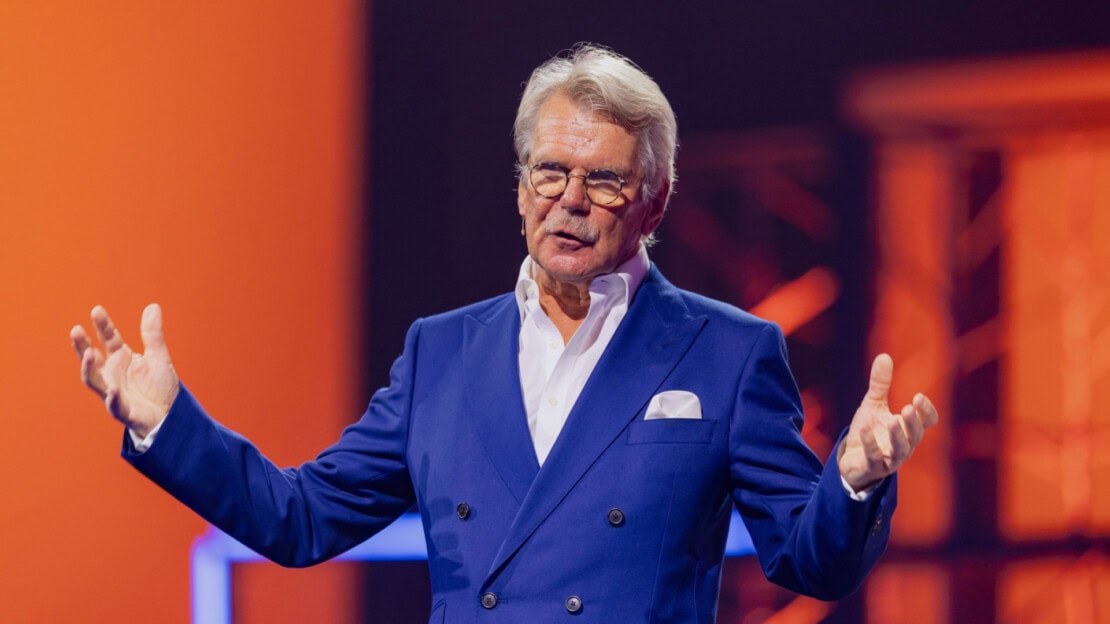14Oct2024
Why is Europe’s economy lagging so far behind the US in every significant metric? As Björn Wahlroos made unambiguously clear in his candid keynote, the EU needs to address its competitiveness issues and reimagine its future direction before it’s too late.
Europe’s Competitiveness under Threat
Wahlroos began by outlining the critical state of Europe’s competitiveness, which he believes has been deteriorating for years. He drew attention to Finland, where economic growth has been stagnant for nearly two decades. “Competitiveness in Europe is under challenge, and no small measures will change this,” Wahlroos noted, signaling that superficial reforms are insufficient to address the deep-rooted issues.
Economic stagnation, bureaucratic inefficiencies, and an increasingly complex regulatory environment have all hampered Europe’s competitiveness in recent times. Wahlroos stressed that these challenges are not confined to individual nations, but are systemic issues that cross borders.
“We’ve had extremely slow growth. Europe is lagging far behind the United States in general economic growth, new initiatives, and particularly in technology.”
Bureaucracy and Regulation: A Hindrance to Growth
One of Wahlroos’s key concerns is Europe’s growing bureaucracy and its stifling regulatory environment. He criticized the European Union for abandoning the principle of subsidiarity—the idea that decisions should be made at the most local level possible.
“Nobody even knows what subsidiarity means anymore. It means that things that can be handled locally should not be handled in Brussels,” Wahlroos argued.
The over-centralisation of decision-making, he warned, is holding Europe back by creating unnecessary layers of regulation that inhibit growth and innovation.
Wahlroos also voiced concerns about the quality of political leadership within the EU. He argued that the European Union doesn’t attract the brightest minds or the most visionary leaders. “When we vote people into the European Parliament, many of the candidates are individuals who their national parties want to get rid of,” he said. If European politics is to be steered by visionaries instead of bureaucrats, it needs to be restructured in a way that incentivises and rewards top talent.
The Role of Defense and Energy Policy
Turning to defense, Wahlroos noted that Europe’s security infrastructure is woefully underprepared, particularly in light of the ongoing war in Ukraine. He criticized Germany’s handling of defense matters, especially their reluctance to invest in military capability. “We need a reasonably affordable defense that actually works,” he emphasized, citing the many instances of needlessly duplicated defense expenditure that have resulted from NATO’s expansion in Europe.
Wahlroos also touched upon the collapse of Germany’s energy strategy in the wake of the war in Ukraine. “The whole central European energy strategy went down the drain with the Ukraine war,” Wahlroos stated, calling for a complete overhaul of the region’s energy policies. A cultural and political repositioning of nuclear power to play a more central role in Europe’s future energy plans is essential if Europe is to meet its energy, sustainability and security goals.
Democracy in Apathy
Wahlroos also questioned whether the European democratic process is truly effective, noting that EU elections often result in little meaningful change. “We vote in EU elections, but nothing ever happens,” Another aspect hundering unified progress in Europe may be the lack of united identity and values, a collective way of viewing the continent’s challenges and path forward. “Americans are American first, country of origin second. In Europe, it’s the opposite.”
Europe’s Path Forward: Integration or Re-Imagining?
In his concluding remarks, Wahlroos presented the audience with several bleak options for Europe’s future. Drawing from a report by former European Central Bank President Dr. Mario Draghi, Wahlroos outlined three paths: paralysis, exit, or progress through further integration.
However, Wahlroos suggested a fourth alternative: returning to Europe’s roots as a union of independent states with a more focused agenda.
“We need a vibrant economy, competitiveness, and a powerful defence. We need a vision of the future based on our common values.”
To achieve the competitiveness Europe needs, must streamline its goals and focus on what truly matters—economic growth, security, and shared values.
Key Points
- Europe’s declining competitiveness: Wahlroos stressed that Europe is falling behind the United States and other global powers in terms of economic growth and technological innovation. Superficial reforms will not be enough to reverse this trend.
- Bureaucracy and over-regulation: One of the central problems holding Europe back is an over-centralized regulatory environment. The EU needs to return to the principle of subsidiarity.
- Leadership and talent in the EU: The EU currently fails to attract visionary leaders, limiting the EU’s ability to address its challenges effectively.
- Nuclear energy: Europe’s energy policies need to be re-imagined, especially in light of the war in Ukraine. A revisitation of nuclear energy should be the cornerstone of Europe’s future energy policy.
- Integration or subsidiarity: The EU must choose between paralysis, exit, or further integration. However, a fourth option – returning to Europe’s roots as a union of independent states with a clear, focused agenda – is also possible.
Questions for Reflection
- How would subsidiarity be of benefit to European businesses operating across borders?
- How can your business prepare for energy price volatility in the future?
- What strategies can your business implement to mitigate risks associated with shifting regulatory landscapes across multiple regions?


